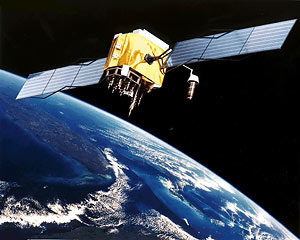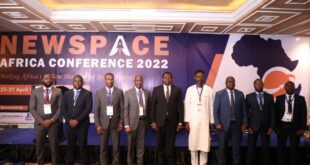
Kazakhstan and Belarus have extended their 2017 space cooperation agreement, and have committed to exchanging satellite imagery with each other.
The agreement was extended on 25 October 2019 as part of a number of Kazakh-Belarusian cooperative initiatives.
The extended space cooperation agreement was signed on behalf of Kazakhstan by its Ministry of Digital Development, Defence and Aerospace Industry, and on behalf of Belarus by the Belarusian National Academy of Sciences.
Regional press reports state that the exchange of satellite imagery between the two countries will be for ‘peaceful purposes’, to include economic development, environmental monitoring, Earth sciences, and disaster management.
The Belarusian National Academy of Sciences operates the BKA (formerly known as the Belka-2) Earth observation satellite that was built by NPP VNIIEM, and launched in 2012.
The BKA satellite is thought to have a panchromatic resolution of 2.1 metres. BKA-2 is expected to be in orbit by 2023, but may be of a different design compared to the BKA satellite launched in 2012.
Kazakhstan, meanwhile, operates the KazEOSat-1, KazEOSat-2, and KazSTSAT Earth observation satellites. KazEOSat-1 was built by Airbus Defence and Space and launched in 2014. KazEOSat-2 was built by the UK’s Surrey Satellite Technology Ltd. (SSTL), is thought to have a panchromatic resolution of 6.5 metres, and was also launched in 2014.
KazSTSAT was built by Surrey Satellite Technology Ltd. for private Kazakh company Ghalam LLP, and was launched in 2018, KazSTSAT is believed to have a panchromatic resolution of 22 metres.
The extended agreement between Kazakhstan and Belarus takes place in the context of both countries’ participation in the Russian-led Eurasian Economic Union (EAEU) initiative to develop and build an Earth observation constellation for use by the economic bloc’s member states.
 SpaceWatch.Global An independent perspective on space
SpaceWatch.Global An independent perspective on space




